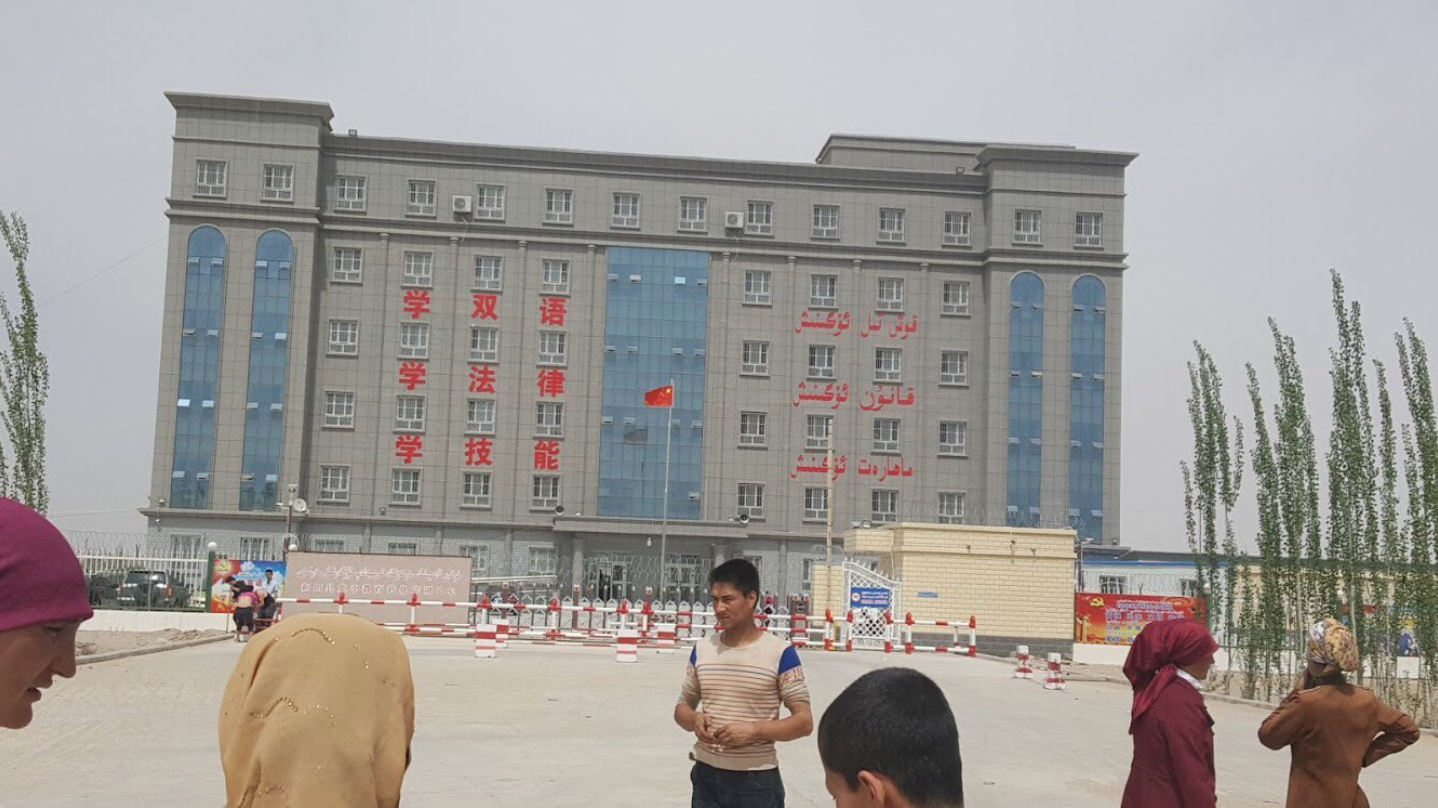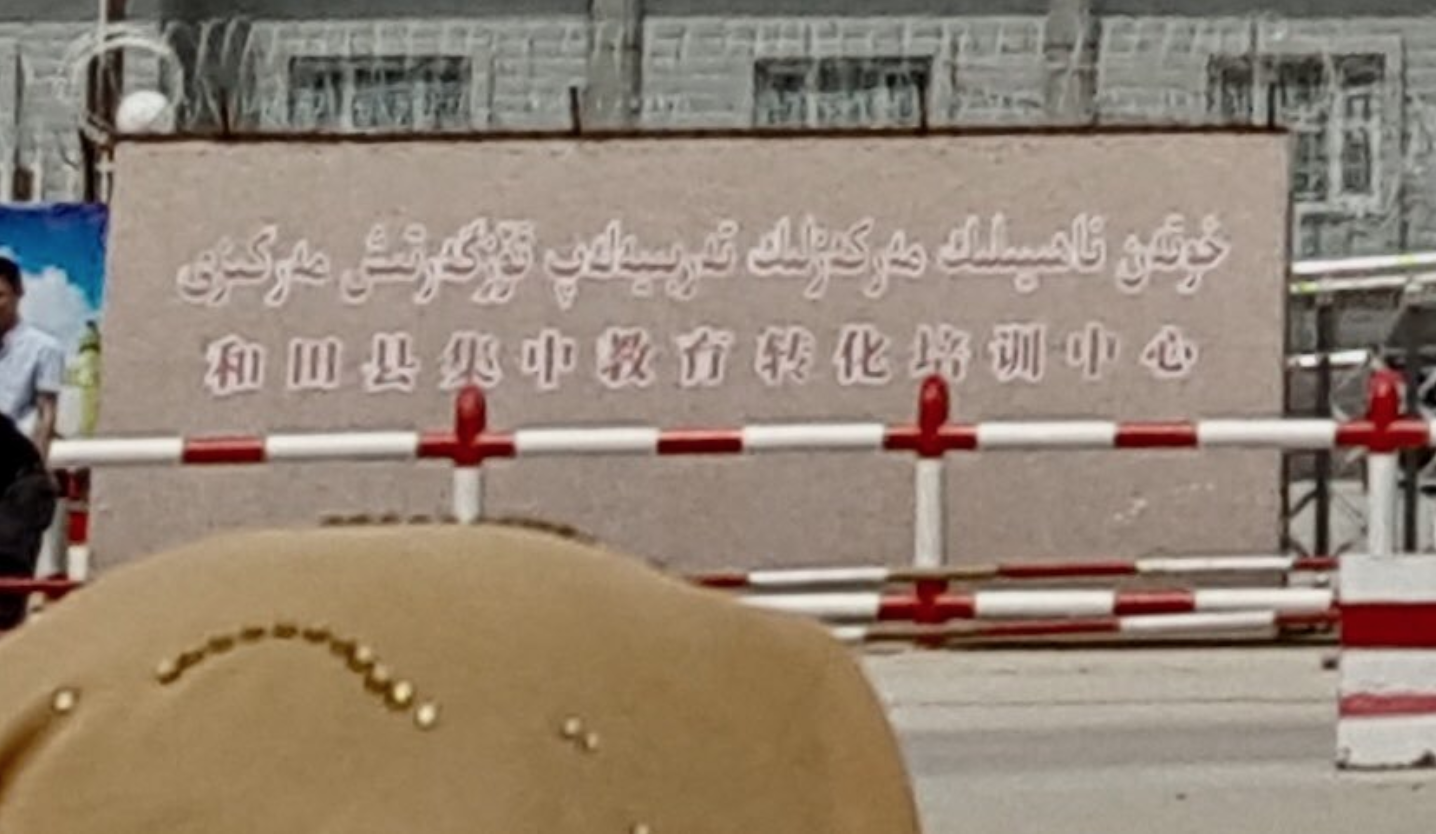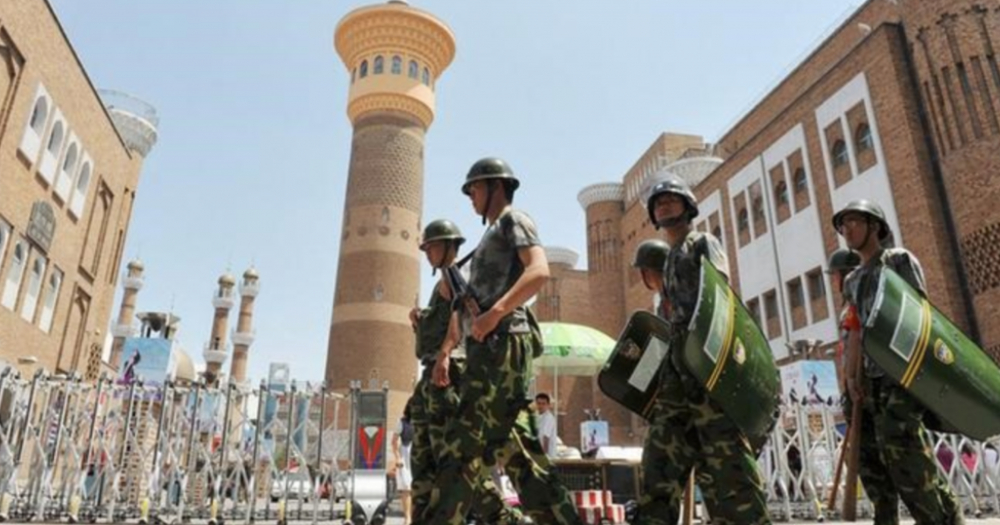China's western Xinjiang region has amended its anti-extremism law on Tuesday (Oct. 9) to allow the use of "vocational training centres" to "educate and transform" people who were influenced by extremism, reported Reuters.
"Help them return to society and to their family"
This is what the new Article 33 of the Xinjiang region's regulations against extremism says (translation via Quartz):
"Educational transformation institutions such as vocational skill education and training centres shall teach the national common language, laws and regulations, and vocational skills.
The centres should organise and carry out anti-extremist ideological education, psychological correction, and behaviour correction to transform the thinking of the trainees so as to help them return to society, and to their family."
The amendment is the first time regulations refer to "training centres".
The older version of the law (Article 14 of Section 3) had included "humane care" (人文关怀) and had not suggested the separation of families.
The anti-extremism law in China first went into effect on April 1 last year.
"Long beards" and the wearing of "full-face coverings" in public were banned, according to China Daily.
A step up from denying it
According to China's state-run press agency Xinhua News, a Chinese official, Hu Lianhe told the United Nations Committee on the Elimination of Racial Discrimination (CERD) that "there are no such things as 're-education centers' or 'counter-extremism training centers' in Xinjiang."
This occurred at 96th CERD session in Aug. 2018 at a dialogue between the Chinese delegation and CERD members.
Instead, Hu said the "vocational training centres" were for "criminals involved only in minor offences" to help them learn vocational skills for better chances at employment.
Propaganda & torture
Many foreign media reports have surfaced on the conditions of the detainees in such 're-education centres', causing a huge international outcry.
According to The Washington Post, corroborated testimonies from former detainees and people familiar with the situation revealed that detained Muslim minorities were forced to study Party propaganda and sing patriotic songs like "Without the Communist Party, there is no New China".
They were even subjected to torture such as waterboarding.
Detainees also had to denounce their Muslim faith, and were forced to eat pork and drink alcohol, according to another report by The Washington Post.
The United Nations (UN) claimed on Aug. 10 that they received "credible reports" that as many as 1 million ethnic Uighur Muslims were detained at "something resembling a massive internment camp, shrouded in secrecy", reported Associated Press.
Concentration camp?
SupChina claimed that such "re-education camps" are essentially "concentration camps" as the situation in Xinjiang is "accurately" described using a definition of the term "concentration camp" provided by The American Heritage Dictionary:
1. A camp where persons are confined, usually without hearings and typically under harsh conditions, often as a result of their membership in a group the government has identified as dangerous or undesirable.
2. A place or situation in which extremely harsh conditions are imposed by those in authority.
The report also pointed out that the word for "concentrated" or "to concentrate" (集中) can be found on the signboards of some of the camps, such as the one located in this picture:
 Image via Austin Ramzy/Twitter
Image via Austin Ramzy/Twitter
It says 和田县集中教育转化培训中心, or "Hotan County Concentrated Transformation Through Education Training Centre" (translation via Austin Ramzy).
 Image via Austin Ramzy/Twitter
Image via Austin Ramzy/Twitter
Although it is unknown if the word was used in the context of "concentration camps", China does use the word 'concentration' (集中) to refer to "concentration camps" (集中营).
What about Xinjiang
Xinjiang is the largest region in China and lies in the northwest.
It is an autonomous region like Tibet, which means it has more legislative rights than other provinces.
It is also the homeland of the Uighurs, who are ethnically Turkic Muslims.
The Uighurs feel stronger ethnic and cultural ties to Central Asia, rather than China's majority Han population.
Bad blood existed since 1949
Tensions between the Chinese state and the Uighurs existed since 1949 when the state of East Turkestan was defeated by Chinese communist forces with the support of the Soviet Union.
Since then, the state has continued to oppress groups that support "separatism".
Many Han Chinese have also moved to the region.
According to the 2010 census, Han Chinese make up 40 per cent of the population (from almost 7 per cent in 1949), while the Uighurs make up 45 per cent of the population (down from 82 per cent in 1945).
The rest are made up of other Muslim minorities such as the Kazakh and the Hui.
"People's war on terrorism"
In 2009, ethnic riots broke out between Han Chinese and Uighur Muslims in Xinjiang, leaving almost 200 people -- both Han and Uighur -- dead.
The clashes worsened the conflict between the Chinese state and Muslim minorities.
Since then, China declared a "people's war on terrorism" in 2014, using "counterterrorism" as justification for turning Xinjiang into a surveillance state.
Bloomberg reported that strict surveillance with facial-recognition systems was introduced -- authorities would be notified when targeted individuals step out of their designated areas for more than 300 metres.
Government controls on the Uighurs' culture and religion became much heavier, even though China's constitution provides for the freedom of religion.
Movement of people was also restricted -- residents were required to hand their passports to the police and get permission if they want to travel to other countries.
And on Monday (Oct. 8), barely two months after the condemnation from the UN and a day before the anti-extremism laws were revised, authorities launched an anti-Halal campaign in Xinjiang.
Harsh policies might backfire
Although China says violence in the region is due to Islamist extremists and separatists, therefore justifying their harsh policies and restrictions on Islamic traditions, Uighur leaders have refuted their claims.
Human rights activists say Xinjiang's unrest is due to frustration at the state's repressive policies.
Some even say China's antagonistic policies towards the Uighurs might actually radicalise them.
China, on the other hand, has consistently denied any repression in Xinjiang.
An analyst wrote on The Diplomat that to the Party, the idea of a "stable" Xinjiang overrides everything else, even its international reputation.
It is also important for them to be seen in control of the situation by the targeted audience, which is the majority Han Chinese.
[related_story]
Top image via Oriental Daily News
If you like what you read, follow us on Facebook, Instagram, Twitter and Telegram to get the latest updates.
